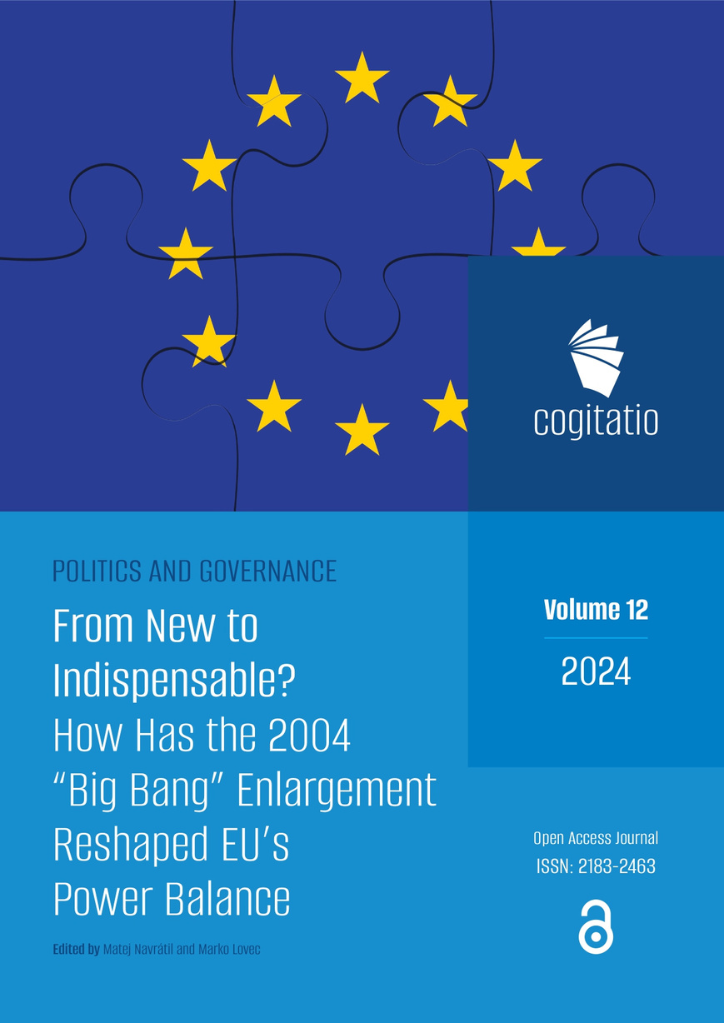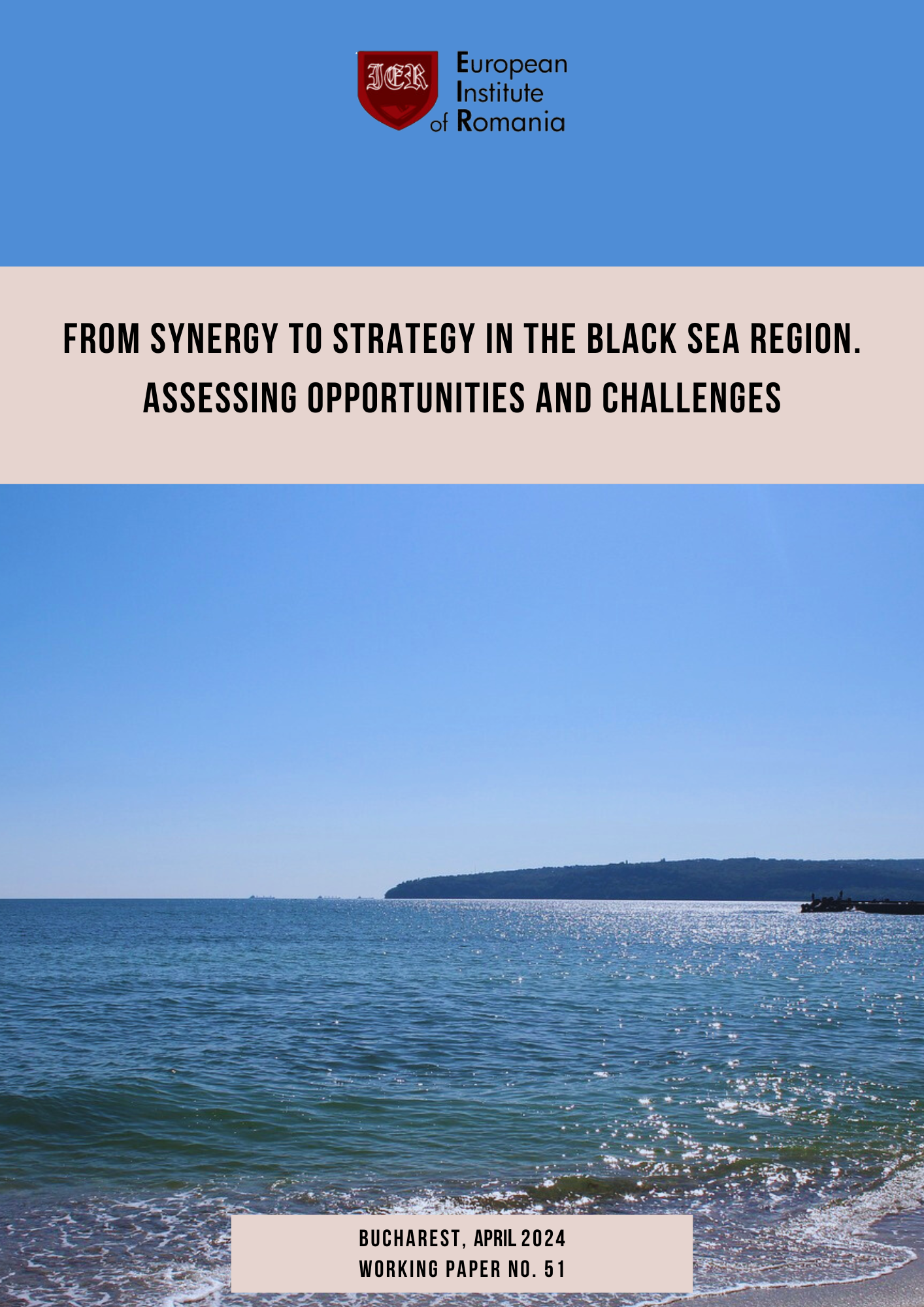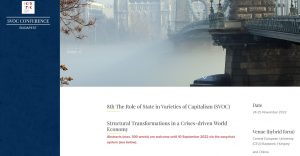8th The Role Of The State In Varieties Of Capitalism (Svoc) 2022
Structural Transformations in a Crises-driven World Economy
24–25 November 2022
Budapest, Hungary / Online
Central European University (CEU)
Nádor street 15, 1051 Budapest
Website: www.svoc-conference.webnode.hu/
Organisers: Institute of World Economics, Centre for Economic and Regional Studies
and Democracy Institute, Central European University
INTRODUCTION
On behalf of Magdolna Sass of the Institute of World Economics, Centre for Economic and Regional Studies (CERS) and László Bruszt of the Democracy Institute, Central European University (CEU), we kindly invite you to submit your papers for the 8th ‘The Role of State in Varieties of Capitalism’ conference. The theme this year is ‘Structural Transformations in a Crises-driven World Economy’, which will take a hybrid form with both onsite and online sessions. CEU in Budapest will host the event with a program encompassing two full days of exciting keynote lectures, panel discussions, and presentations.
The conference is co-funded by the National Research, Development and Innovation Office (NRDIO) of Hungary, project number FK 124573.
TOPIC RATIONALE
The world economy faced multiple crises in recent decades – from the Global Financial Crisis, to the Euro Crisis, the Climate Crisis, the Covid-19 pandemic and, more recently, the war in Ukraine – leading to a renaissance of state intervention in economies throughout the world. Consequently, structural transformation and adaptation to address newly arising challenges (re-)entered the agenda of academic and policy debates in both less and more advanced parts of the world economy. This renewed interest in the analysis of the state’s role in supporting structural change, building economic and social resilience in times of crises, while events have also led to a rise in research on comparative capitalism.
Cutting-edge debates in comparative capitalism tend to focus on extending its respective theoretical framework and expanding its geographical coverage to incorporate “under-researched” regions and countries. Recent theoretical developments reinvigorated the role of the state and tended to focus on macroeconomic demand, through which they began to address the structural dimension of development. Yet, human and environmental issues remain neglected.
In-line with these new tendencies and perspectives, the conference aims to contribute to both theoretical debates and bringing together more applied research on contemporary models of capitalism, with a special focus on the structural-, human- and environmental-dimensions of development.
We particularly encourage that scholars submit research papers that are geared to different levels of analysis, namely, the national, regional, or sectoral, that relate to provide a more nuanced understanding of structural change, the green transition, as well as inclusive and sustainable development. Though the following list of topics is by no means exhaustive, we encourage prospective participants to submit their papers in one of the following categories:
- Expanding varieties of capitalism’s (VoC) theoretical framework
- The (comparative) analysis of contemporary variants of state capitalism
- Industrial policies in the twenty-first century
- Structural transformation in more and less developed economies: the role of knowledge- and innovation-intensive sectors
- Industry 4.0
- Post-crisis models of sustainable development
- The green transition
- The nexus between global value chains and structural change
Abstracts (max. 300 words) are welcome until 25 September 2022 via the easychair system.
The Easychair website is the primary communication channel for SVOC 2022.
Participants are kindly asked to use it to submit abstracts and papers.
All information issued by the organisers will also be sent from Easychair.
The website and the link to the conference is available at:
https://easychair.org/cfp/SVOC2022
CONTACT
The two primary organizers of the conference are Emese Dobos and Tamás Peragovics. Their contact details are as follows:
Emese DOBOS dobos.emese@krtk.hu
Tamás PERAGOVICS peragovics.tamas@krtk.hu
While communication through Easychair is to be prioritised, participants are welcome to contact Emese and Tamás if they need:
- An official invitation letter for visa applications
- An invoice for the conference fee or help with transferring the conference fee
- Assistance, suggestions in making travel and accommodation arrangements, etc.








